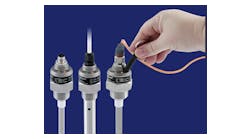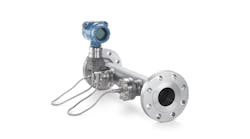"In my three years in the electric power industry, this course is by far the most helpful seminar I have yet attended. The information in this course should be taught to all engineers, particularly mechanical and process engineers, soon after graduating college. I only wish I could have attended this course earlier in my career. Larry’s presentation style is very helpful to understanding what can be a complex topic that most power plant operators and engineers do not have a handle on. Larry has "demystified" the one piece of equipment that has confused me, and others, in the industry. I also appreciate the honesty and candid conversation that can be provided by a third-party representative without a slant towards particular brands of manufacturers." The above comment is from an attendee at the Sept. 14-16 Pump Guy Seminar in Chicago. This comment, extracted directly from our exit surveys, is among a number of glowing reviews we received for this the latest installment of the popular Pump Guy Seminar Series.
The training, presented by world-renowned pump expert and regular Flow Control contributor Larry Bachus (a.k.a. "Pump Guy"), schooled a room full of folks from a variety of backgrounds on the finer points of pump operation, maintenance, and systems design. And Larry’s straight-forward approach really seemed to resonate, as he drove home point after point with his favorite catch phrase, "It ain’t rocket science, people!"Attendees at the Sept. 14-16 training included such job titles as project manager, mechanical supervisor, engineering supervisor, sales engineer, mechanic, technician, and, my personal favorite, martini product development. Companies in attendance spanned industries from food and beverage to oil & gas to engineering consulting to water & wastewater, just to name a few. Overall, Larry’s focus was to bring attendees back to the basics of systems design and maintenance and operations strategy. He warned attendees against getting caught up in complex technologies, and advised them to instead concentrate on the founding principles of pumping systems design and operation, such as pump and system curves, NPSHa vs. NPSHr, and proper piping arrangements. Ultimately, he stressed that the problems of seal and bearing failure, cavitation, and "mysterious" vibrations, are, generally speaking, the result of pumps that are poorly mated to the system in which they are operating. Larry made a special point to note that while the mechanics and operators often get the blame for pump failures, such problems can often be trfaced back to poor systems design. At one point, Larry wondered why some engineers withhold their pump curves from the operators. "Why don’t operators have access to the pump curves?" he said. "This is like hiding the dashboard from the driver of a car." Other topics covered at the seminar included: Cavitation; the Affinity Laws; Work & Efficiency; Pump Classification; Shaft Deflection; and Pump-Motor Alignment. All told, it was an intense three-day training session, and everybody learned a lot. While this was the final Pump Guy Seminar of the 2010 campaign, we will be offering our most extensive Pump Guy Seminar schedule to date in 2011, with four open-registration events scheduled and a number of additional dates available for in-plant trainings. We’ll kick off the 2011 run of the Pump Guy Seminar Series with a Feb. 15-17 training in Houston. For more information on upcoming Pump Guy Seminars and/or to bring the Pump Guy Seminar to your plant, please e-mail me at [email protected]. Pumps are key area of opportunity for organizations to improve the efficiency of their processes, and the Pump Guy Seminar provides the knowledge you’ll need to take advantage of such opportunities. You don’t want to miss it.
– Matt Migliore, Editor-in-Chief
[email protected]
[email protected]


